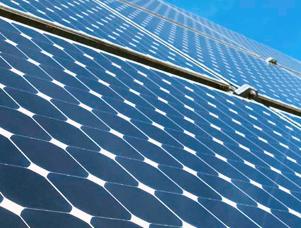ET4376 Photovoltaic basics
This course gives an introduction to direct energy conversion of light into electricity that takes place in advanced semiconductor devices called solar cells. Another term that describes the field of solar energy conversion into electricity is Photovoltaics (PV).
The course will give a short overview of different solar cell technologies, production of solar cells, market, and applications. The main parameters of radiation spectra, and the solar spectrum in particular, will be presented. Suitable solar-cell materials, optical and electronic properties relevant to PV conversion, processes in these materials such as absorption of light, transport of charge carries, and their recombination-generation will be explained.
The course will focus on solar-cell operating principles. Dark and illuminated J-V characteristics, solar cell external parameters and their measurement will be discussed. The course will also treat the efficiency limits of present solar cells; effect of illumination, temperature, and parasitic resistances. These effects will be demonstrated using an equivalent circuit of a solar cell. The optimal design of solar cells will be discussed based on the analysis and minimization of optical and recombination losses in solar cells.
Study Goals
Students learn about renewable energy sources, namely the conversion of solar energy directly into electricity using solar cells. This course aims at understanding the principles of the photovoltaic conversion based on the knowledge of material properties and processes in the solar cells. Students understand the performance limits of different types of solar cells and can design solar cell structures that minimize the optical and collection losses in the energy conversion process.
Teachers
O. Isabella
Last modified: 2023-11-04

Details
| Credits: | 4 EC |
|---|---|
| Period: | 0/4/0/0 |